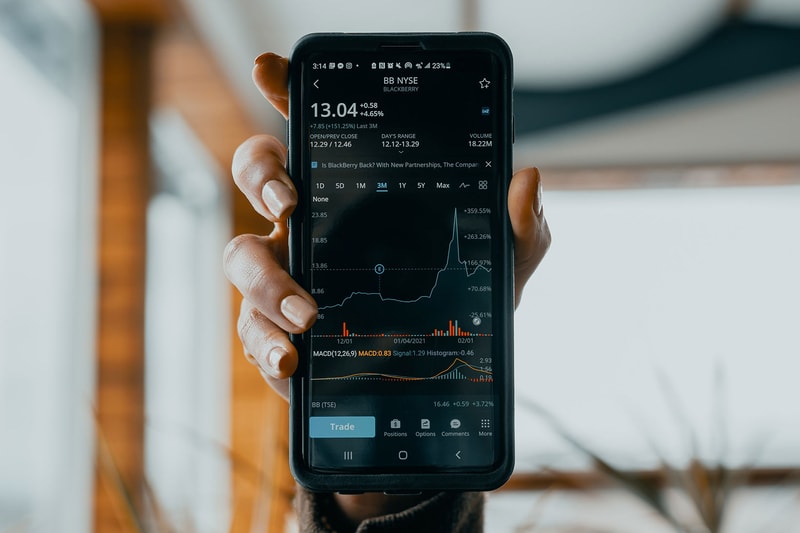How To Start Investing in Stocks: An Expert Shares Tips for Beginners
info@hypebae.com (HYPEBAE) Fri, 18 Jun 2021 HYPEBAE
From the sudden spike in GameStop's stock price earlier this year, to the recent craze surrounding NFTs and cryptocurrencies, the interest in financial investments is growing more than ever. For those who have been looking to dip their toes in the waters of stocks, bonds and so on, here's a beginner's guide that breaks down some important first steps and tips to consider.
To get a better idea of the world of investing, we spoke with Sallie Krawcheck, CEO and co-founder of Ellevest -- a woman-owned financial company that aims to help women with investing, budgeting, paying off debts and more. Although investing may seem overwhelming with all the intimidating charts, numbers and economic jargon, the platform suggests that it's never too early to get started.
From the basics to the dos and don’ts, continue reading for our Q&A with Krawcheck on a few things to know before investing.
While you're here, learn about how NFTs work and why they've become so popular in recent months.
View this post on Instagram
Q: What are the most common types of investments?
Sallie Krawcheck (SK): Most investment portfolios are made up of two main types of investments: stocks (aka "equity") and bonds (aka "fixed income"). Owning stock means owning a small part of a company; owning bonds is a form of lending company money (plus interest).
One of the most common types of investments are stocks. When you buy a company’s stock, you actually own a very small slice of the company itself and you can call yourself a shareholder. The value of a share of stock is driven by how much investors think the entire company is worth. For example, if a company is estimated to be worth $10 million USD and there are $1 million USD shares of stock in existence, each share would be worth $10 USD. (This is a simplified example — a company might issue different types and levels of stock — but that’s the gist.)
Another type of investments are bonds. When you buy a bond, you’re doing something very different. Instead of owning a piece of a company, you’re actually loaning your money to a company (or entity) over a period of time. Whoever issued the bond (like the U.S. government, for example) promises to pay you back after that time, along with regular interest payments along the way, at fixed intervals. That’s why you’ll often see bonds called “fixed-income” securities.
There are a few different ways to own stocks and bonds. First, of course, you can buy them directly. But you can also get stocks and bonds into your investment portfolio by buying shares of funds, which are baskets of many different investments (often including stocks and bonds) put together.
Q: Why should I start investing?
SK: Investing is one of the best things you can do for your future self and it’s never too early to start. Here’s why:
First, the market has historically trended upward over the long term -- even though some individual years were up and some years were down, the stock market has returned an annual average of 9.8 percent. (Of course, the past is no guarantee of the future, but that’s the trend we’ve seen over the last 92 years.)
Second, the power of compounding. That’s what happens when your investments have the chance to earn money, and then that money has the chance to earn you even more money and so on.
View this post on Instagram
Q: Do I need a lot of money to start investing?
SK: If you’ve got room in your budget to start right away, then there’s nothing you need to do to prep — you can get started and then learn more as you go. No, you don’t have to invest a lot of money right away.
If you’re still working on what we call the “financial basics,” though, here are some points to keep in mind:
Track your money and make a high-level plan so that you know what’s coming in, what’s going out and whether you’re working toward your goals. At Ellevest, our favorite is the "50/30/20" rule: 50 percent toward needs (rent, bills, food, etc.), 30 percent toward wants (the fun stuff), and 20 percent toward your future (investing, saving, debt payments).
Get that employer 401(k) match. If you’re lucky enough to work at a company that provides a 401(k) match and if you can swing it, our recommendation is to get every penny. This can be free money and yes, this counts as investing.
Pay off high-interest debt. There are a lot of different kinds of debt. There’s credit card debt, which usually has really high-interest rates and can make you feel like there’s a hole in your pocket. (Not too far from the truth.) Some other debt — certain federal student loans, for instance — might have pretty low interest rates, like less than five percent. Your top priority: Pay off any debt with an interest rate greater than 10 percent as soon as you can swing it.
Build an emergency fund. We typically recommend saving up three to six months’ worth of your take-home pay in its own bank account that’s backed by the Federal Deposit Insurance Corporation (FDIC). Yes, that might feel like a lot of money, but start small and build up. Go for $1,000 USD then $2,000 USD, then one months’ worth of take-home pay, then two, until you get there.
Once you have those basics in place, there’s no magic answer for how to find more money in your budget for saving and investing. But here’s our advice: Start where you are, and, if you can, "pay yourself first" — set things up so your deposits come out of your paycheck automatically and you never get a chance to miss the money. And then bump it up a little bit at a time. Even if it’s one percent of your take-home pay — every dollar counts. The most ideal tip we can give is this: invest consistently, a bit out of every paycheck, with an eye on the long term.
View this post on Instagram
Q: Where can I look for information about investing?
SK: There’s literally just one key thing: investing in the stock market (or any investing markets) comes with risk. Sometimes your investment account will go up in value, and sometimes it will go down in value. There are no guarantees. We still believe investing in a diversified portfolio can give you a better chance of hitting your long-term money goals than simply saving can, thanks to those historical returns we've mentioned — but we don’t want to send you in there blind.
If all of this sounds like a lot, don’t panic. Platforms like Ellevest are built to do the heavy lifting of all that for you. You can set up a recurring deposit into an investing account with Ellevest in five minutes. With no investment minimum, so you can start where you are. We manage your investments for you based on the information on your life and your goals that you give us, so it’s not going to eat a lot of your time once you get started.
If you’re a naturally curious person and want to learn more — there are a few places for you to start. You can check out our explainers on how investments can make money, all the benefits of using ETFs and exactly why you should start investing ASAP and consistently.
DISCLAIMER: All content on this site is for informational purposes of a general nature only, and does not address any circumstances of any particular individual or entity. Do not construe any such information or material as legal, tax, investment, financial, professional or any other advice. Please refer to our Investment Disclaimer | HYPEBAE for more details.







